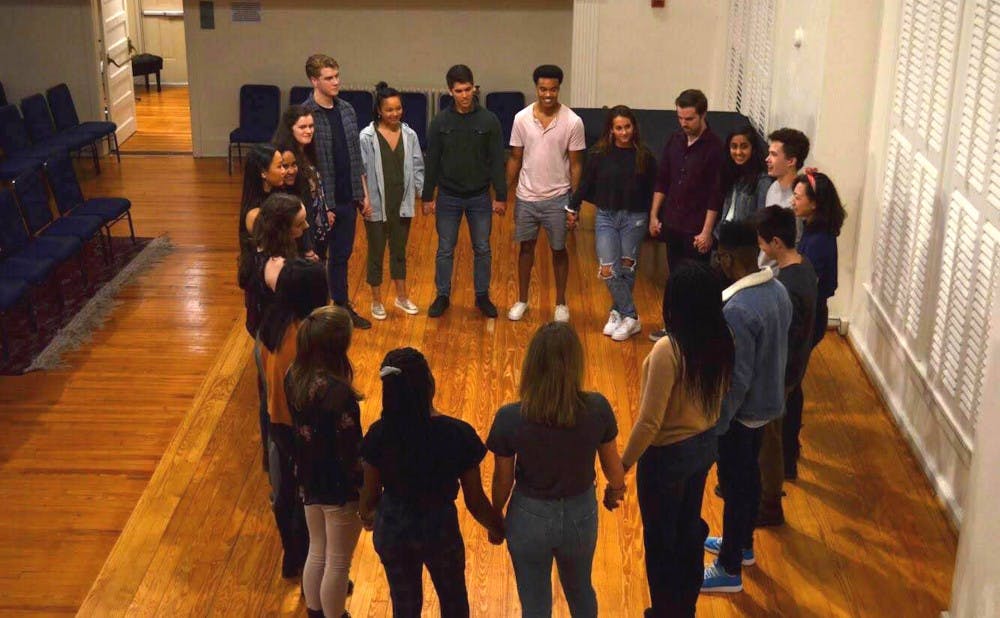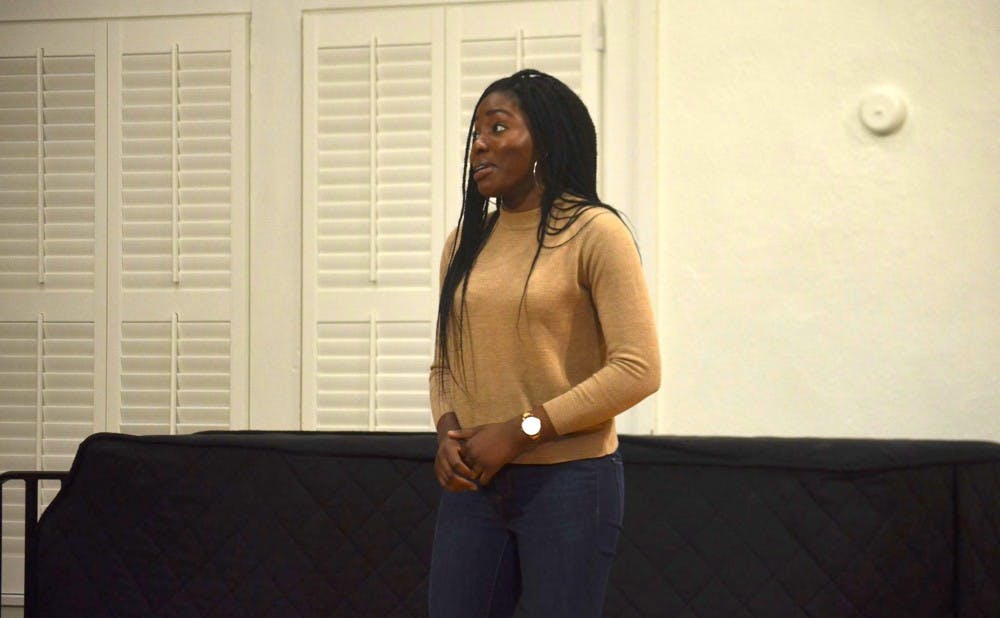Nelson Music Room filled up last weekend with undergraduates eager to learn about the experiences of their peers — except, they weren't sure whose experiences they were hearing.
Me Too Monologues is celebrating its 10th anniversary this year, with their second weekend of shows taking place this coming weekend. Me Too sparks conversations on identity through an annual show completely written, performed and produced by the Duke community. Students, faculty and alumni are invited to submit anonymous pieces, which peers perform as monologues in a theatrical production. The monologues this year focus on topics such as racial and national identities, mental health and loss.
To celebrate the anniversary, each actor performed a line from one of the monologues of the past ten years, giving a small sampling of the number of different identities and life experiences honored by Me Too in the past 10 years.
"We wanted to give our history a space on stage," said Delmedico.
Me Too was founded in 2009 by Priyanka Chaurasia, Trinity '10, and was originally housed under the Duke Center for Race Relations. After Chaurasia attended Common Ground, a diversity immersion retreat where students share stories on how their identity markers have affected them, she realized the power testimonial theater could have on a community. Only three years after the 2006 Duke lacrosse scandal, Chaurasia believed Duke would benefit from a campus space to openly discuss issues relating to race, ethnicity and culture, according to current senior and Executive Producer Annie Delmedico.
Me Too began accepting stories concerning all identity markers in 2012, and became an independent organization in 2014. In 2015, the organization began to expand nationally, with productions popping up at UNC, Princeton and Columbia, among other universities. In addition to their yearly show, in 2017 Me Too starting hosting the Me Too podcast, which features monologues as well as discussions with community members on related identity issues.

The Me Too production team received around 80 possible pieces last semester for this year's show. They met for over nine hours to discuss each individual monologue, then chose 18 to include in the production based off of the pieces' tones and themes in relation to the other chosen works.
"Our selection of monologues this year included a lot of unique voices, maybe not ones people could directly relate to, but ones that taught us important lessons," said senior and Theatrical Co-director Vivian Luo.
By instigating a dialogue about a variety of identities, Me Too inspires the Duke community to question campus culture and be more honest and empathetic in their everyday lives. The audience is encouraged to interact with the performers, snapping or stomping when an aspect of the monologue resonates with or inspires them.
"The natural limitation of our show is that we can't represent every story on campus," said Delmedico. "The hardest part is keeping that at the forefront of our minds while creating a space for people to change within themselves or change the way they hear others' stories."
Once the production team determined which monologues would feature in the show, they held open auditions to select performers. They looked for three categories of actors: ones that could do humor, ones that could do drama and ones that could give a didactic, Obama-like speech. They match performers as closely as possible to the identity markers of the monologues, and play with the freedom of some of the pieces that don't have clearly defined markers.
"In the end of the day we're looking for someone who's able to connect," said Luo.
Ten years later, the Me Too Monologues remains a central space for openness and honesty in Duke campus culture. Due to the courageous submissions by the writers, the performance asks viewers to question their own Duke identities, as well as how they interact with other community members.
"We want to illuminate these perspectives of people on the margins of identity markers we encounter in our everyday life," said junior and Theatrical Co-director Betsy Broaddus.
The Me Too Monologues will take place in the Nelson Music Room Friday and Saturday at 7 p.m., as well as Sunday at 2 p.m.
Get The Chronicle straight to your inbox
Sign up for our weekly newsletter. Cancel at any time.

